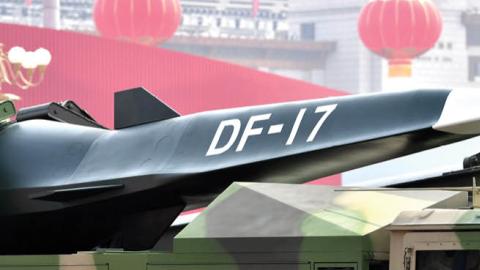Eighty years ago, imperial Japan used a technology first developed by the U.S. and the U.K.—carrier-based bombing and torpedo attacks—to cripple the American Navy at Pearl Harbor. Americans must now wonder whether China is setting the stage for another devastating attack on American forces using another U.S.-pioneered technology: hypersonic missiles.
China’s July 2021 test of a hypersonic missile was literally a shot “around the world,” according to Gen. John Hyten, the departing vice chairman of the Joint Chiefs of Staff. “It went around the world, dropped off a hypersonic glide vehicle that glided all the way back to China, that impacted a target in China,” he told CBS News. When asked why China was developing this advanced technology, Gen. Hyten replied, “They look like a first-use weapon. That’s what those weapons look like to me.”
Hypersonic weapons don’t follow a single trajectory like ballistic missiles. They can twist and turn on their way to a target, while their incredibly high speeds—above Mach 5, or a mile a second—make it impossible for existing land- and space-based systems to detect a hypersonic attack until very late in the missile’s flight path. It also isn’t clear whether current U.S. command-and-control systems can process data fast enough to respond to a head-on hypersonic threat.
China tested a second nuclear-capable missile carrying a hypersonic glide vehicle on Aug. 13. This means that Beijing is surging ahead with a technology against which the U.S. has very limited capability for defense or detection.
The shame is that the U.S. has been the primary developer of hypersonic vehicles, going back to the X-15 program in the 1960s. According to Mike Griffin, a former undersecretary of defense for research and engineering, the U.S. effectively shut down its hypersonic effort in the mid-2010s—while China made hypersonics a Manhattan Project-level priority. As a result, Gen. Hyten told the website BreakingDefense.com in October, China has performed “hundreds” of tests of hypersonic weapons in the past five years, while the U.S. has conducted nine.
Read the full article in the Wall Street Journal

















